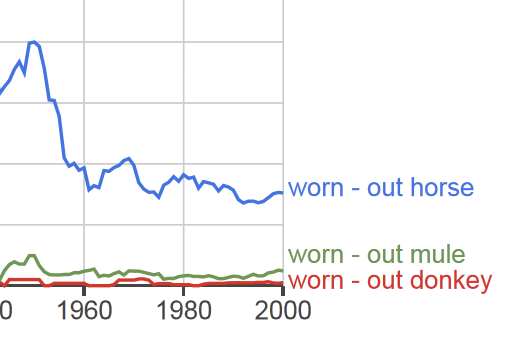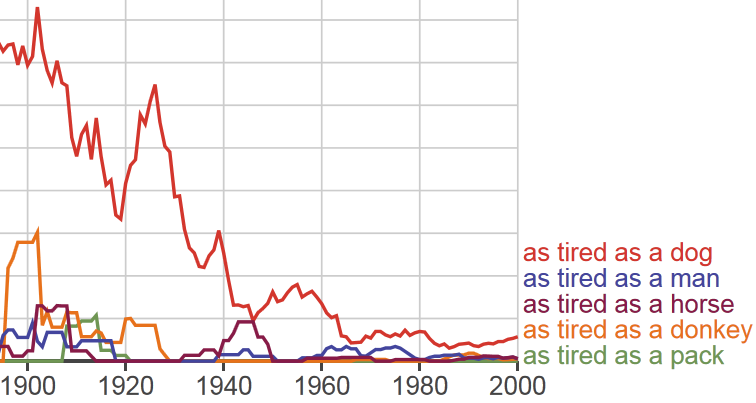A common adjective would be worn-out. (as in worn-out donkey).
(Of a person or animal) extremely tired; exhausted:
http://www.oxforddictionaries.com/us/definition/american_english/worn-out
Note: Worn-out horse is more common than worn-out donkey. Personally, I heard or read worn-ourout horse more than worn-out donkey also.
Below Ngram comparison ( between worn-out horse, worn-out donkey, worn-out mule) might give an idea also but it doesn't prove how widely accepted the terms are in general:

Example:
Under fire, he "hugged the ground more than once," fatigue knocked him out, and sometimes he collapsed like "a worn-out horse."
[Under the Bombs: The German Home Front, 1942-1945 By Earl Ray Beck (1986)]
As an additional information, it is more common to use "as tired as an <animal noun>" phrase without using an adjective before the animal noun. Though, it seems like this usage has fallen dramatically. Dog is still more common than donkey or horse.
Below NGram comparison might give an idea also: (Note: I searched **as tired as a ***, asterisk character is a wildcard. I tried searching tired as a * donkey or tired as a * horse but I didn't get any results.)

As Mari-Lou A suggested in the comments, dog-tired is more common than any of these as an animal-related term to indicate exhaustion.
